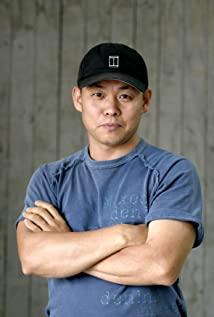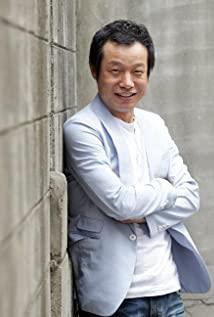This impression of Kim Ki-duk didn't change until 2003's Spring, Summer, Fall, Winter...and Spring. I was very surprised that such a Zen-like (hope) movie was actually made by Kim Ki-duk; in 2004's "Samaritan Girl", the familiar tone of Kim Ki-duk (sex, violence, despair) reappeared , but it is not entirely a rubbing of the old things, but something more. This "something more" thing has been moving me for a long time.
1/ What is the crime?
Is it possible to live without being alone? Everyone is born with different temperaments and encounters, and personal experience cannot be rooted in others, so no matter how deep we are in the world, there is inevitably a limit. And there is this difference in the loneliness between people. Even if it is the same thing called "loneliness", it will not be able to understand each other just because everyone has it.
This sense of estrangement, especially when we face relatives or loved ones, will become particularly sensitive, because no matter how much we love a person, "love" does not guarantee us full access to his world, which is between people limit. Youzhen and Jiewan in the movie, Youzhen and Youzhen's father, are in the limit between this person and the other person, love each other desperately, and start their own way of redemption from sin and punishment.
In order to travel to Europe with Youzhen's dream, Jiewan began to help communicate. Assisting communication is not so filthy to her, she said that she is like the Bodhisattva Bodhisattva who made love to men to enlighten people in Buddhist books. Jiewan is always smiling, smiling at Youzhen, smiling at whore clients, and smiling cleanly without discrimination. That is the lotus flower that can grow from the purest place in the heart. If the Bodhisattva is in the world, it should be like this. Youzhen couldn't understand Jiewan's pure feelings for her clients. Apart from raising travel expenses, those clients meant nothing to her. During a police inspection, Jiewan jumped from a high-rise building and was seriously injured. Before she died, her only hope was to meet the client she once liked. Youzhen sacrificed her virginity to fulfill Jiewan's wish, but Jiewan still died. The deeply beaten Youzhen began to pretend to be Jiewan, retrieved the men who had sex with Jiewan before, had sex with them, and then returned the money to them. And Yuzhen's father accidentally found out that his beloved daughter was engaged in assistance and communication, and looked at his daughter in disbelief and sadness. He didn't blame himself, but blamed himself. He began to use his methods to punish the men who had friendship with Yuzhen with violence. In the end it turned into a crime.
When Youzhen was full of thoughts and sat crying alone in the solemn night, his father could only watch by the side, unable to do anything. The daughter also couldn't understand the sadness of the father. All the thoughts of the father, like the sushi he swallowed whole, were stuck in his mouth, in his stomach, and could not be digested. And they love each other so deeply, but they can't do anything about each other's sadness.
2/ The road of redemption
usually accuses others of being the culprit of depravity and misfortune. This is the most direct way to relieve yourself of the psychological burden. As long as the fault is not your own, you will be innocent. People with a strong redemptive mentality either hold very high moral standards for themselves or come from great love. Youzhen's aid in communication, Youzhen's father's accidental murder, the truth of these crimes all come from love. Because of love, I can't forgive myself. Youzhen can't forgive himself for letting Jiewan die in pain, and Youzhen's father can't forgive himself for failing to protect Youzhen well.
Excessive worship of God, it is easy to put human beings into hell; too much love for a person, it is difficult to forgive one's own mistakes. Sin requires redemption, and punishment is the method of self-redemption. punish yourself with a crime. Youzhen used sex to atone for himself. If he didn't return the money, and if he didn't destroy himself, he might not be able to forgive himself; Youzhen's father used violence to atone for himself, if he didn't kill the person who helped his daughter, if he didn't destroy him I'm afraid I can't forgive myself for ruining those whore clients by myself. The method is: destroy yourself; the purpose is: forgive yourself.
They all want to go back to the past when nothing happened, but life can only go forward. The only thing we can do is to keep, keep starting over.
At the end of the film, Youzhen's father taught Youzhen to drive, drew a lane for her, asked her to practice along the way, and then encouraged her to move forward bravely by herself. This is the last thing a father can do for his daughter. Such household chores and company are already great love. When we can't accompany the people we love all the time, we must also know how to let go at the right time. The love that can let go is a deeper level of love, and there is breadth and thickness in that kind of love. Those tolerant gazes are the most beautiful scenery on earth. This is the end of the film, but also the beginning of the story.
View more about Samaritan Girl reviews









